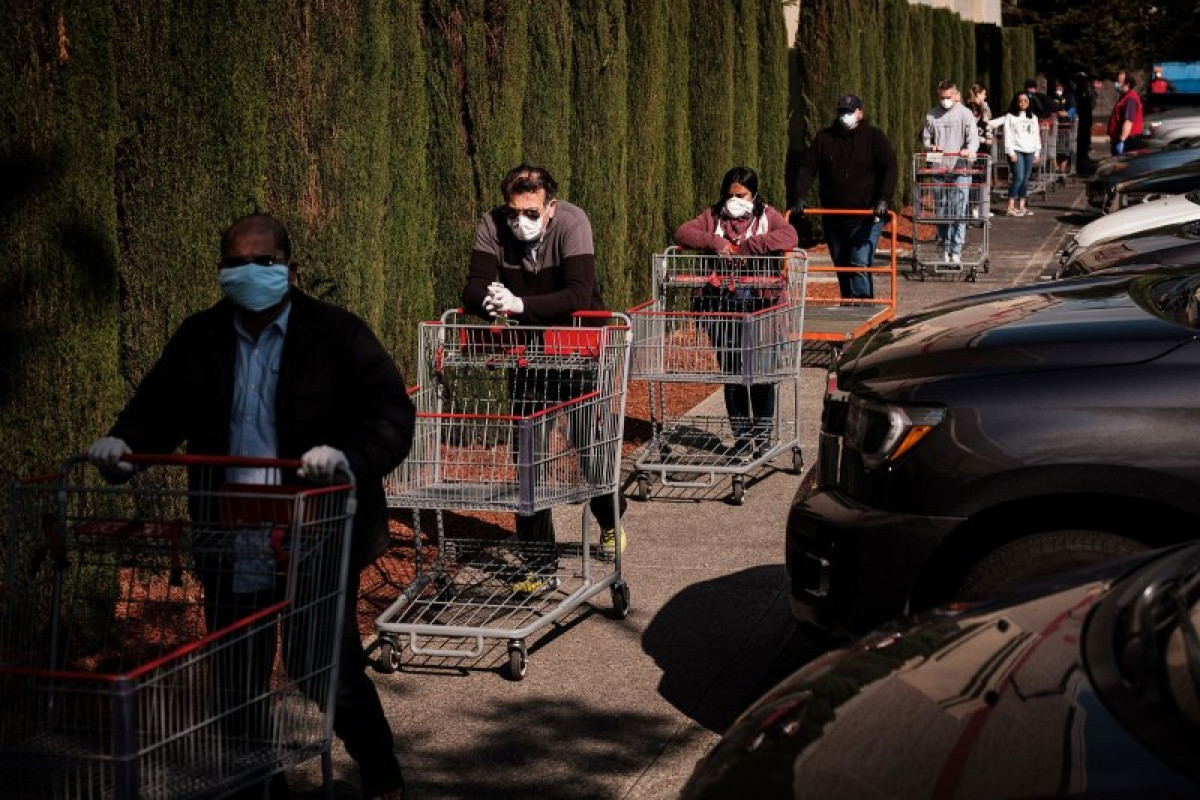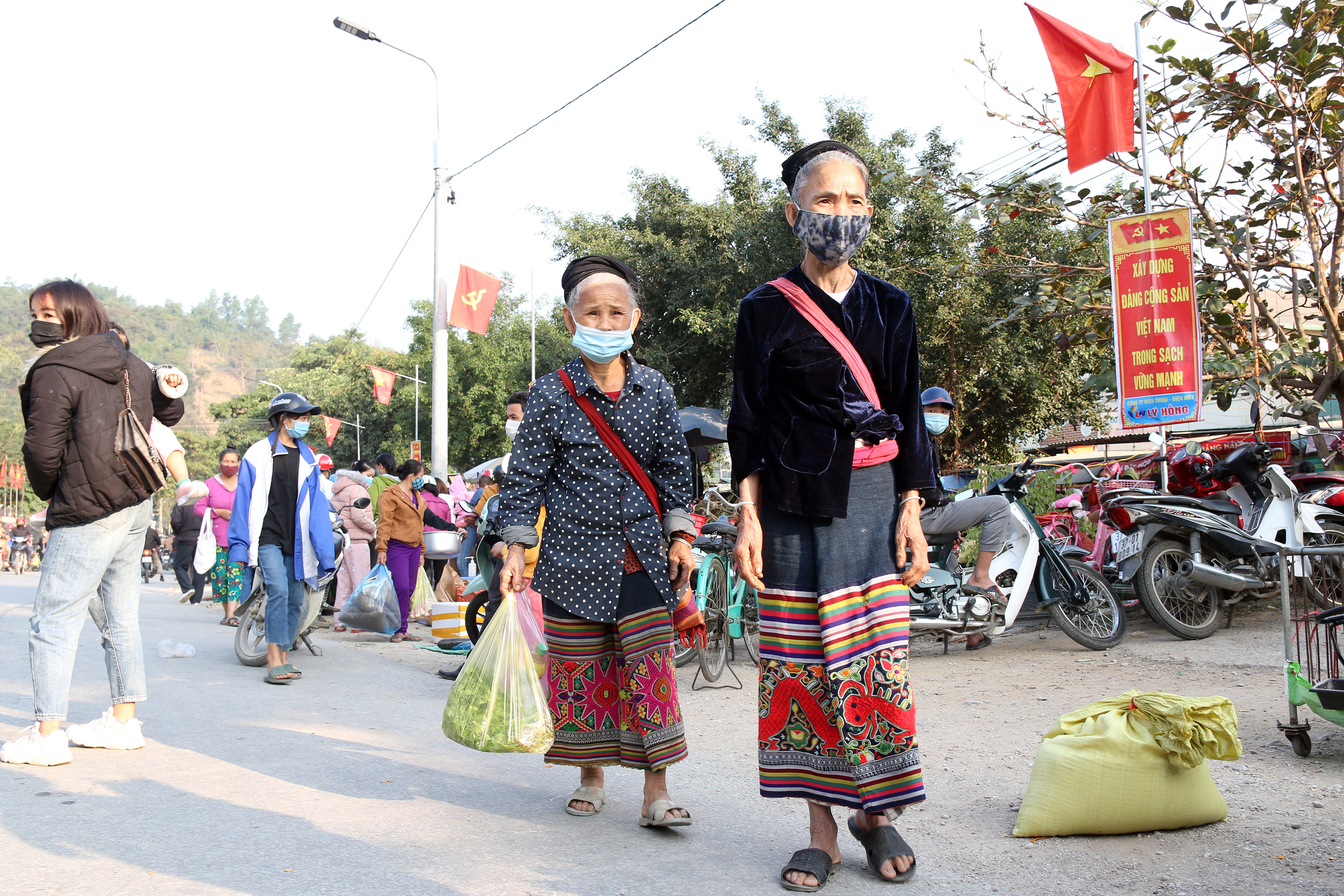Learning to live with the Covid-19 pandemic
The Covid-19 pandemic continues to spread after more than a year of outbreak, making the world realize that what we need to do is not to eliminate it, but to learn to live with it.
When will the Covid-19 pandemic end? Will it be when our lives return to normal? Will it be when the world achieves herd immunity? Or will it be when the disease is defeated, when the last patient is cured and the disease is just a name in the history books?
 |
| Illustration: Getty |
Covid-19 becomes a long nightmare
To date, the SARS-CoV-2 virus has infected more than 100 million people worldwide and killed more than 2 million. New, more transmissible variants of the virus are spreading around the world. Although highly effective vaccines have been developed and deployed in record time, it will still take a huge effort to vaccinate enough people worldwide to achieve herd immunity. In many countries that have access to vaccines, logistics and vaccine hesitancy have created major obstacles, while in developing countries, vaccines are not even accessible at all.
There are, and will likely be, global success stories in the fight against Covid-19. Israel has vaccinated enough of its population to begin planning for a post-herd immunity scenario. New Zealand has also successfully contained the virus through domestic lockdowns and strict border controls. Australia and several Asian countries have used similar methods to severely curb the spread of SARS-CoV-2. However, in places like the US, the virus is still widespread and eradication is an elusive goal at this point. Experts say Covid-19 may become a regular epidemic but not as severe as last year. That doesn’t mean the virus will be everywhere all the time, but it won’t disappear completely.
The challenge in the US in particular and the world in general today is probably not to eradicate the SARS-CoV-2 virus but to learn to live with it.
Covid-19 is a new disease, and there is no clear path forward. No one knows how long it will take to achieve herd immunity, or whether we will ever get there if the virus mutates faster than vaccines can be adapted. Or if a large portion of the world’s population chooses not to get vaccinated, which could mean the door slams shut.
Currently, 70% of the world's population needs to be vaccinated to achieve herd immunity, a distant goal given that only 8% of the US population has been vaccinated so far.
Obviously, the Covid-19 epidemic will be easier to deal with if more and more people are vaccinated, causing the spread of the SARS-CoV-2 virus in the community to slow down or stop completely.
Despite the slow start to vaccine distribution in the US, “if we get vaccines in place effectively in April, May, June, July, August, we will have some level of protection that will allow us to go back to some normalcy” by the fall, Dr. Anthony Fauci, director of the National Institute of Allergy and Infectious Diseases, said in January.
Even if the U.S. stays on schedule with its vaccination program, there will still be gaps in protecting certain populations from the Covid-19 pandemic. The two vaccines currently approved in the U.S., Pfizer and Moderna, are both 95% effective in preventing the disease, but there are a small number of people for whom the vaccines do not work. It is also unclear whether vaccinated people can still transmit the virus to others. In addition, there will always be some people who choose not to get vaccinated or who cannot get vaccinated. Furthermore, children under 16 are not eligible for vaccination. That means the SARS-CoV-2 virus could still spread among young people until vaccine makers complete studies in children, which they hope to complete this year.
Saskia Popescu, an assistant professor at George Mason University, said the US is unlikely to eradicate the Covid-19 pandemic in the near future. New Zealand, an island nation of 5 million people, will have an easier time controlling the Covid-19 epidemic than a global travel hub like the US, with 330 million people living in 50 states and territories. But even if eradication is a distant future, "I think we can get to a stage where we can reduce the spread of the virus," said Sandro Galea, head of the Boston University School of Public Health.
Living with the Covid-19 pandemic
Some current precautions, such as wearing masks in public, will continue throughout 2021, while more drastic measures, such as school closures and stay-at-home orders, will likely be temporary and localized. If cases spike in a particular area, public health officials will likely be ready to respond with testing and vaccination campaigns, Popescu said.
With the emergence of several worrying variants, Jonna Mazet, a professor of epidemiology at the University of California, said the US needs to establish a robust surveillance system to track new variants of the virus. That means future travelers to the US will have to be tested before entering the country or large companies and hospitals will have to regularly test their employees or patients to monitor the emergence of new variants in the population.
If worrisome mutations continue to emerge, vaccine makers will have to adjust their formulas. Fortunately, the mRNA technology developed in Pfizer and Moderna’s vaccines means they can do so in just a few weeks. Covid-19 shots use the virus’s genetic sequence to teach the body how to make proteins that can trigger an immune response. Maria Van Kerkhove, technical lead for the World Health Organization’s emergencies unit, said the vaccine could be tailored to specific geographic areas depending on how and where the virus mutates.
That has shown the need for rich countries to actively support developing countries in accessing vaccines because even if a country achieves herd immunity, this could be threatened by new mutations in the virus emerging in areas that have not been widely vaccinated.
The good news is that we have learned to live with the Covid-19 pandemic, just like seasonal flu and the common cold. These diseases are not harmless – the flu affects millions and kills tens of thousands in the US each year – but we have learned how to minimize its impact.
In fact, flu shots don’t offer complete protection, and they aren’t widely used, but the United States has found ways to control the disease. In addition to the millions of people who get vaccinated each year, the Centers for Disease Control and Prevention has a surveillance system designed to track where and how strains of the flu virus are spreading, so that specific precautions, such as temporary school closures, can be taken. People are also accustomed to taking precautions during flu season.
While Covid-19 vaccines need to be tweaked every year, the measures to prevent the disease remain largely unchanged. A surveillance system is needed to track new variants.
In addition, about 50% of executives said they planned to require vaccinations for workers who are not working remotely, while weddings and parties would require vaccinations for attendees. Several countries, including Britain, are piloting “immunity passports,” which would identify people who have recovered from Covid-19 and allow them to travel freely.
While these systems may seem effective on the surface, according to Nicholas Evans, a professor at the University of Massachusetts, the use of immunity passports is not always effective. Requiring proof for international travel encourages some people to ignore the vaccine priority system and, more dangerously, intentionally get sick to gain natural immunity.
 |
| Highlanders are also highly aware of Covid-19 prevention and control. Photo: Dinh Tuan |
A more effective solution, experts say, is to invest in public health systems, which have been neglected in the face of the Covid-19 pandemic, to improve their ability to prevent, respond to and cope with this and other diseases.
“We need to invest in building a healthier country, so that when another virus comes in, we are not caught off guard like we were with the SARS-CoV-2 virus,” said Galea.
As Covid-19 becomes a widespread disease, it means countries should invest in nationwide testing centers so that experts can identify and respond as new outbreaks and variants emerge.
Living with the Covid-19 pandemic will require cooperation at all levels and in all sectors, whether in vaccination and vaccine distribution, or in wearing masks, regular testing, contact tracing or following the instructions of health authorities.
“While the virus adapts to its host, we adapt to the virus,” said Steven Taylor, author of The Psychology of Pandemics.
Even though weescape the Covid-19 pandemicAt some point, the concept of “normal” will no longer be understood in the same way as it was in 2019. However, if we learn invaluable lessons from this pandemic, we can move towards a healthier world and a more concerned public health issue./


